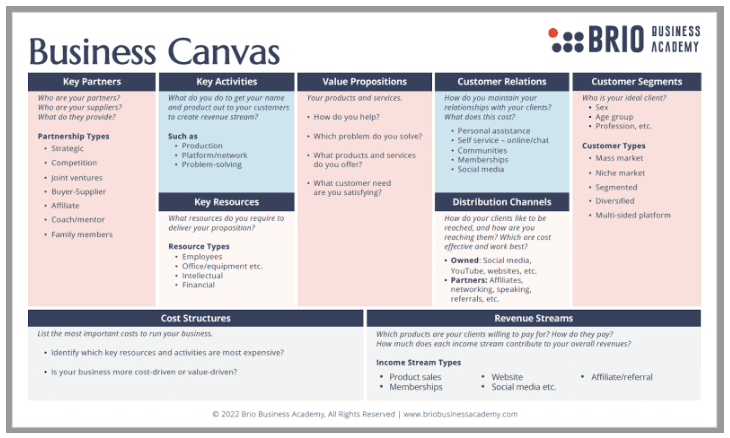The idea of writing a business plan can make solopreneurs cringe and wonder:
“Do I really need a business plan if I’m just doing consulting on my own and I already have clients? It’s not like I need one to secure funding or for a pitch competition – so it seems like writing a business plan would be a distraction and a waste of time. Isn’t my energy better spent in keeping my current clients happy and finding new ones?”
The truth is, you don’t have to have a written business plan. In fact, many solopreneurs are already in business for themselves before they’ve taken the time to imagine what they want their business to look like over time.
So, you wouldn’t be alone if you skipped the step of writing a business plan.
However, that doesn’t mean those solopreneurs are (or that you will be) successful without one. In fact, half of new businesses created don’t last five years. What’s the biggest reason for failure? Lack of planning!
That’s exactly what baseball legend Yogi Berra (who won more World Series Championships than any other player) was referring to when he said, “If you don’t know where you are going, you’ll end up someplace else.”
That’s why successful entrepreneurs recommend that you map out where you want to go and how you’re going to get there. We call that a business plan!
While there are no shortcuts to writing a business plan, there is an easy place to start!
Many seasoned entrepreneurs recommend starting the process by creating a business canvas – which provides a model for your business, based on a thorough investigation of your most likely and most successful competitors. It will also become the framework for the initial draft of your business plan.
The business canvas model is powerful because it distills your thinking about the business into one (albeit, often oversized) sheet of paper by bringing together all the aspects of your business visually. In fact, when examining why a business failed via 20/20 hindsight, high level strategic errors could have been identified and prevented had the entrepreneur written down their business canvas!
A “business canvas model” is a standardized concept, and the versions found online are very similar. Here’s a link to Brio Business Academy’s business canvas, which is discussed more fully in the “Creating Your Business Plan” course. You’ll find our model especially helpful because it includes questions to answer for each section of the business canvas.
What’s not obvious about the business canvas model is where to start.
We’ve been trained to work from left to right, but when it comes to building a business, wise entrepreneurs start with their customers! Then they work out how they can help their customers, and next how they can be rewarded for the value they provide.
Knowing all of this, they work out how to access those customers and communicate with them. They outline the work to be done and what is needed to accomplish it. Finally, it’s time to assign numbers to everything that has been identified so you can eventually evaluate the return on your proposed investment.
While these aren’t rigid steps, it works to bring some order to your thinking. As you flesh out the various aspects in your business canvas, you’ll make adjustments. This is normal as they all play off of each other.
Try working on them in this order:
1. Customer segment
2. Value proposition
3. Revenue streams
4. Channels
5. Customer relationships
6. Key activities
7. Key resources
8. Key partners
9. Cost structures
The most critical step of creating a business canvas comes at the end.
It’s important to share your business canvas with an objective mentor. It’s much better to address the issues early in the planning stages than after you’ve poured time, energy, and money into your new venture!
Sharing the model with friends and family is fine, but they likely won’t have the experience to point out potential flaws. And even if they did, they’re often too nice about it and the sugar-coated feedback doesn’t correct what is required for success.
Brio advises entrepreneurs to choose a mentor who has nothing at stake in their success. This is what enables them to be objective and straightforward with you.
Once you’ve received objective feedback, and made the necessary adjustments to your plan, then it’s time to test your assumptions and find out if what you’ve designed in your head (and written down on paper) will work out that way in the real world.
Spoiler alert!
It probably won’t work exactly as you’ve imagined, but that’s to be expected. The next step is to iterate until you find the secret sauce that makes your company both successful and unique.
Just remember, you don’t have to do it alone.
If all of this is seeming a bit complex, that’s a good thing! You want to have a healthy respect for what you’re about to undertake. The good news is, there’s a community of entrepreneurs who will pay it forward so you can learn from their experience. Brio Business Academy provides just that.
If you’re looking for a step-by-step guide for the creation of your business plan, check out Brio Business Academy’s “Creating a Business Plan” course. Brio also has carefully hand-selected mentors and coaches available to assist you through the entire process or to review your business canvas/plan … so you are truly never alone!


